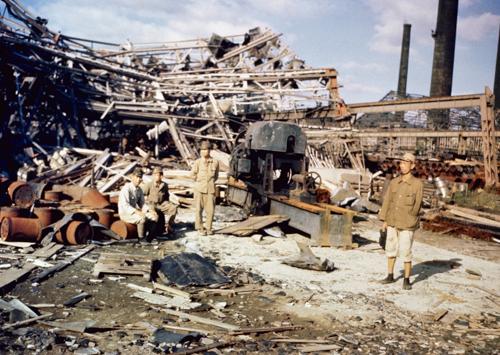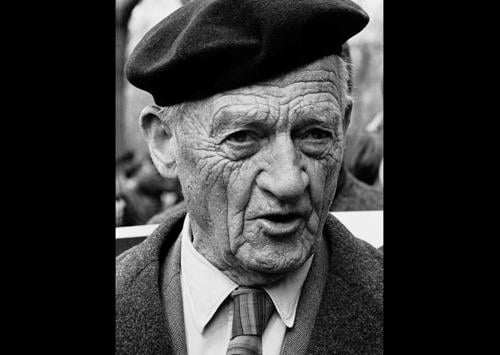Listen to New Voices on Studs Terkel our partnership with 826CHI-here! Read the Story
Showing 1 - 8 of 8 results
-
William Craig talks to Studs Terkel
William Craig discusses his book "The Fall of Japan: The Final Weeks of World War II In the Pacific." He speaks mostly on the atomic bombings of Hiroshima and Nagasaki. Includes several excerpts from the book.
-
Paul Boyer discusses his book "By the Bomb's Early Light"
Jan. 9, 1986 In the book, "By the Bomb's Early Light: American Thought and Culture at the Dawn of the Atomic Age," Paul Boyer covers people's feelings and attitudes after the bomb was dropped in Hiroshima. Boyer admits he, himself, when he was a young boy, he sent away for a free atomic ring that was being advertised. The program includes an excerpt of David Lilienthal talking.
-
Michael Anania discusses and reads his books of poetry "The Red Menace" and "The Sky At Ashland"
Nov. 24, 1986 Michael Anania discusses and reads his from his books of poetry called "The Red Menace" and "The Sky At Ashland". Anania also discusses his life and inspirations. Includes a clip of children speaking about the world and war. Includes a clip of a jazz song called "Lester Leap In" by Count Basie at the end of the program.
-
James Cameron discusses journalist responsibility and expectations of political leaders with Studs in Ashburn Gardens, London ; part 2
Studs Terkel interview with James Cameron, Brittish journalist. They discuss the objective truth and facts of journalism. Cameron shares his experience with a dying Winston Churchill and his views on science and human values. Politics, youth, and the atomic bomb are also topics in this interview. Studs quotes Albert Einstein and Sidney Burnstein, while Cameron quotes Oliver Cromwell. James Cameron's book, "Point of Departure" is also mentioned in the interview.
-
James Cameron discusses his experiences as a Brittish Journalist and his political and social beliefs ; part 4
Jun. 4, 1973 Studs Terkel interview with James Cameron, Brittish journalist. They discuss a variety of topics with politics and young people's attitudes the majority of the interview. This interview is done in Chicago, while the other three parts were done at Lewis and Clark College.
-
George Feifer discusses his book “Tennozan”
Jun. 30, 1992 Journalist, novelist, and historian George Feifer discusses his book “Tennozan,” focusing on Okinawa Island during World War II and the impact of the atomic bomb. Includes a 20 second test tone. Content Warning: This conversation includes racially and/or culturally derogatory language and/or negative depictions of Black and Indigenous people of color, women, and LGBTQI+ individuals. Rather than remove this content, we present it in the context of twentieth-century social history to acknowledge and learn from its impact and to inspire awareness and discussion.
-
A. J. Muste talks with Studs Terkel
Feb. 15, 1965 Peace advocate and labor activist, A. J. Muste, discusses war and how human conflict can be overcome; recorded at the home of Sidney Lens shortly after Muste's 80th birthday.




